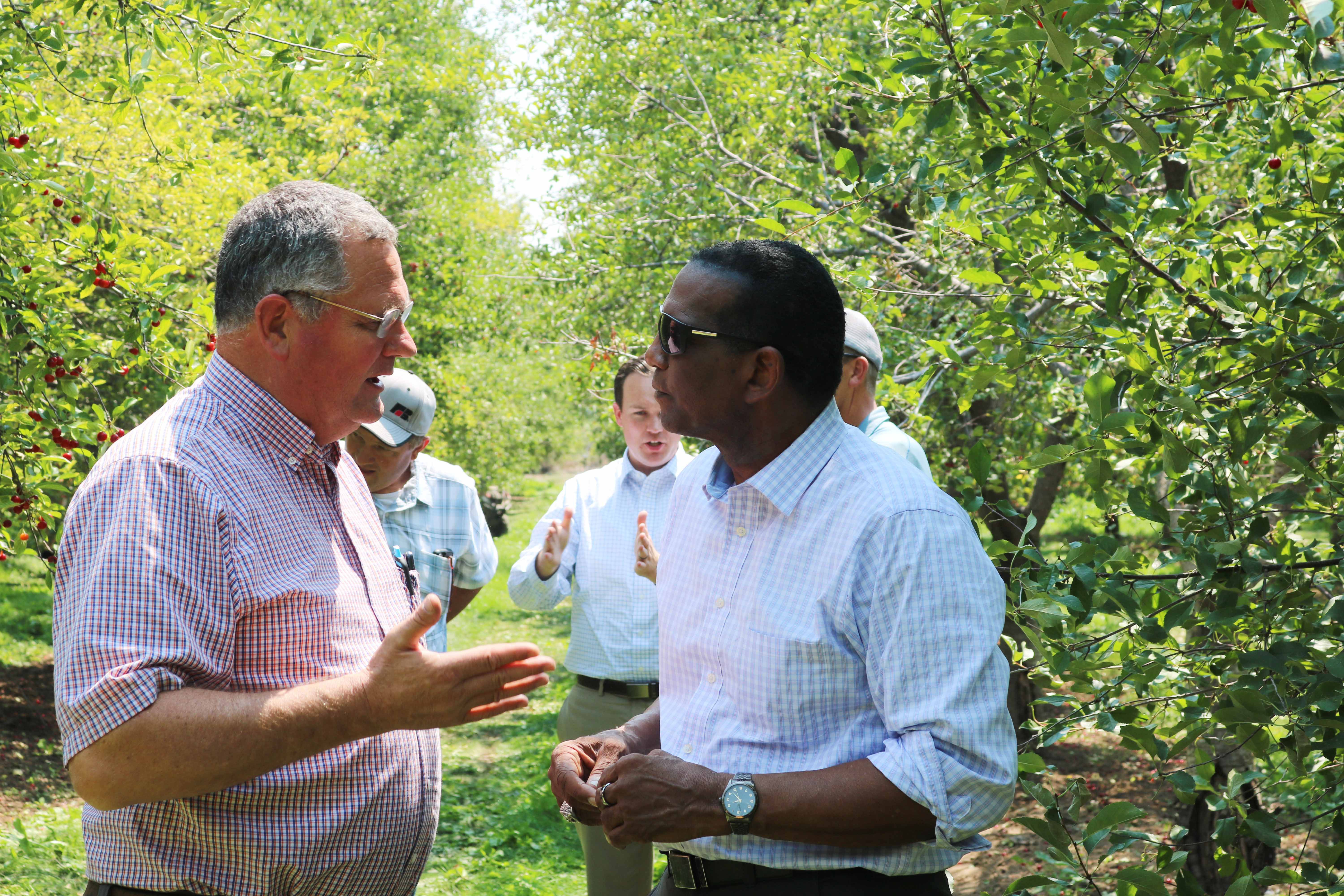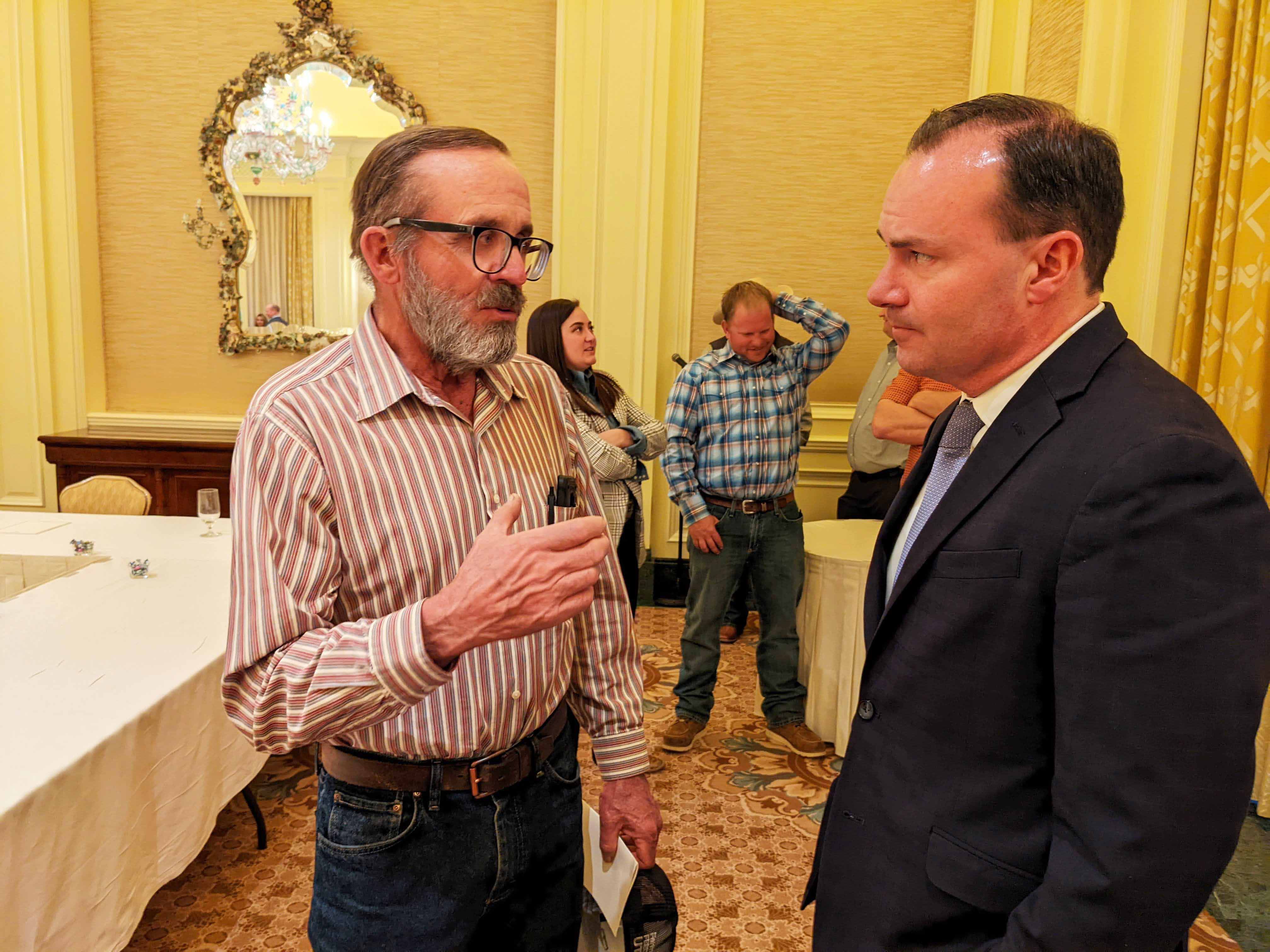August Recess, Prime Time for Grassroots in Action
Author
Published
8/1/2022
In a little over a week, 435 members of Congress will head home, and just a week later, the Senate will join in the August recess. This tradition of leaving DC at the end of the summer to spend extra time meeting with constituents back home began more than 50 years ago. And this year, it will be one of the longest recesses in years, with 45 days for the House and 31 days for the Senate. For Farm Bureau this time is anything but a “recess”: this is prime season for grassroots activities.
Lawmakers across rural, suburban and urban areas need to see and hear from farmers and ranchers in all seasons, but especially during recess season. It’s hard to match the face-to-face connections between lawmakers and the people they represent. While I am committed to sharing your stories here in Washington, there’s an even greater impact when your Senators and Representatives hear directly from you about the issues you face. The most powerful influence of any advocate is your personal story. How are you impacted by the issues? This is what members of Congress and their staff need to hear from you. What’s more, the timing of August recess gives you an opportunity to have the ear of members of Congress right before they take up important issues in the fall.

Doug Rowley of Mountainland Apples (left) visits with Rep. Burgess Owens (right) during an orchard tour in 2021.
August is the time to help our elected leaders understand the many challenges across agriculture, from high input costs and inflation to the challenges Mother Nature brings. That’s why it's not too early to talk about the farm bill. Discussions and hearings have already begun in preparation for the 2023 farm bill. This is really a “food and farm bill” as it provides critical programs and risk management tools for farmers, but also secures access to food and nutrition for low-income families across urban and rural America. This bill is updated every five years to ensure that it is working for all Americans and achieving the goal of keeping our food supply secure. You can share with your Senators and Representatives how specific farm programs support your family’s work as well as enable you to fulfill your mission of growing safe, sustainable food for our communities and nation.

Sen. Mitt Romney tries his hand on a cherry shaker during an orchard tour in 2021.
Members of Congress need to hear that true sustainability for agriculture includes economic viability, ensuring that farm and ranch families can pass their work on to the next generation. Taxes play a consequential role in economic sustainability and your voices can directly impact what happens on the tax front. Tell Congress the tax increases included in the Build Back Better bill, now being considered by the Senate, would have a devastating impact on farm and ranch families. Thanks to many of you making your voices heard, we have seen major successes with protecting stepped-up basis and limiting estate taxes. But so far many of these provisions remain temporary, leaving many families uncertain when it comes to estate planning. Congress needs to hear from you about the importance of permanent tax law that allows family-owned farms and ranches to transfer from one generation to another and about the serious consequences of tax code changes that put farms in the red.

Neal Briggs, Davis County Farm Bureau President, visits with Sen. Mike Lee during a visit to Salt Lake City in early Spring.
Finally, while some of you may have the opportunity to participate in virtual town halls throughout the year, for many more, lack of broadband limits your ability to connect with lawmakers and customers far from your farm or ranch. In-person opportunities during recess are the perfect chance to talk with your lawmakers about securing broadband access. It’s unacceptable that 42 million Americans, mostly in rural areas, don’t have broadband internet access. We all know that broadband is no longer a luxury, it’s a necessity. Congress made significant investments in new broadband programming through the Bipartisan Infrastructure Law. You can thank those lawmakers who supported these new investments, and stress how important it is for those resources to be targeted to those areas that remain unserved.
I understand that it’s a commitment—and often a sacrifice—for you to take the time away from the farm to meet with lawmakers. But I can also assure you that it is well worth it as an investment in your farm and the future of agriculture. I encourage you to look for opportunities, whether that be attending a town hall or county fair event, visiting your congressional district office, or hosting a tour or event on your farm or ranch. Farm Bureau is also here to support your grassroots engagement efforts. You can reach out to your county or state Farm Bureau or our Advocacy team here at AFBF for more information and ideas. Together, let’s make the most of this August recess and send Congress back to Washington this fall, ready to take action to strengthen agriculture and rural America.

Zippy Duvall
President
Vincent “Zippy” Duvall, a poultry, cattle and hay producer from Greene County, Georgia, is the 12th president of the American Farm Bureau Federation.
Want more news on this topic? Farm Bureau members may subscribe for a free email news service, featuring the farm and rural topics that interest them most!
